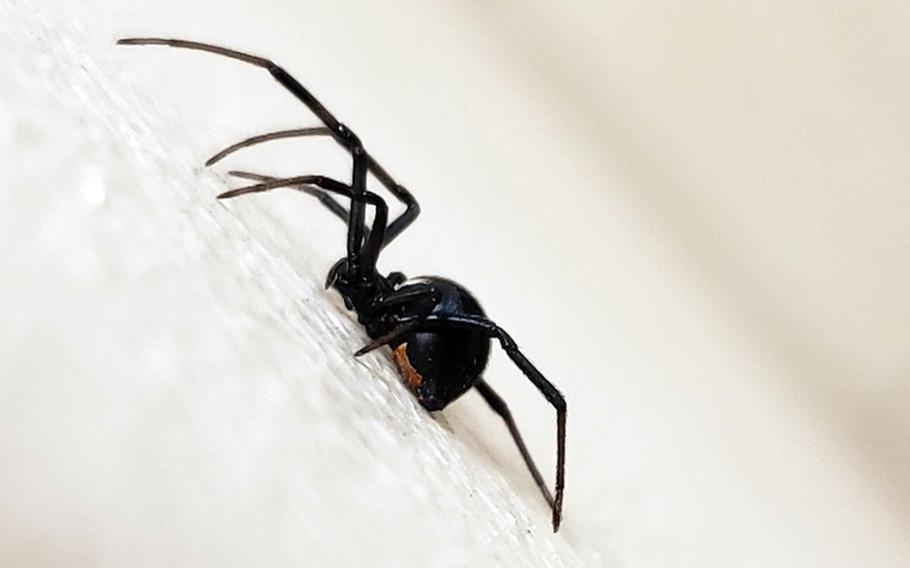Marine Corps
Marine base in Japan reports surge in invasive redback, widow spiders
Stars and Stripes August 26, 2025

The most effective defense is awareness of the spiders’ habitats, such as under benches and in grassy areas where they hide. (Pixabay)
MARINE CORPS AIR STATION IWAKUI, Japan — Twice as many venomous spiders were exterminated this spring on this base in western Japan compared with the same three months last year, according to Yamaguchi prefecture.
MCAS Iwakuni, about 25 miles southeast of Hiroshima, eradicated 921 black and brown widow and redback spiders between April 22 and July 21, the prefecture said in an Aug. 15 report. That was more than double the total for the same period in 2024 and triple the number reported in the first quarter of this year.
All three species are closely related and considered invasive in Japan. The redback widow spider first appeared in the country in 1995, said Koichi Goka, a researcher at the National Institute for Environmental Studies, by phone Friday.
It remains unclear whether the overall invasive spider population is growing, an official at the Environment Ministry’s Office for Alien Species Management said by phone Aug. 20. The ministry does not track national trends on venomous spiders, whose extermination is carried out by local governments.
Goka said he believes the number has increased at MCAS Iwakuni but does not know why. They persist partly because their eggs are hard to eradicate.
“The egg masses are in cocoons made of spider silk, making it difficult for chemicals to reach them, which makes chemical control difficult,” he said.
Japan designated all three spiders as invasive alien species in 2015.
Redbacks, native to Australia, have spread throughout Japan except for the northern prefectures of Akita and Aomori, according to the National Institute for Environmental Studies’ invasive species database.
Brown widows were first found in Japan in 1995 in Yokohama and have since spread to 12 prefectures, including Tokyo, Kanagawa, Yamaguchi, Fukuoka and Okinawa, according to the database.
Black widows were first spotted in Japan 25 years ago at MCAS Iwakuni, Goka said.
These widow spiders are believed to have arrived in shipping containers or military vehicles, according to the database.
The air station has played a role in efforts to control the spiders.
“MCAS Iwakuni provides a regular report regarding spider eradication efforts to the government of Iwakuni City,” base spokesman Maj. Mason Englehart said by email Monday. “The air station strives to maintain transparency and communication with local leaders to ensure they are informed of our continuous efforts to eradicate spiders on the installation.”
The three species are considered dangerous because their venom contains a neurotoxin that can cause severe pain, vomiting and muscle rigidity, depending on the dose and a person’s sensitivity, according to the Australian Museum. Redback bites are more common in Australia’s summer months, where an average of 250 cases a year require antivenom.
“They are highly sensitive to chemicals, so chemical control is effective,” Goka said. The best way to kill them is to step on them or use insecticides commonly available at drug stores, he said.
The most effective defense is awareness of the spiders’ habitats, such as under benches and in grassy areas where they hide, Goka said. Sprays meant for ticks and mosquitoes do not work on spiders, he added, so people must take care to avoid being bitten.
If you get bitten, you should see a doctor, he said. The pain will go away in several days and no cases of an adverse reaction to a venomous spider bite have occurred in Japan, he said.
“There have not been life-threating cases, so there is no need to be extremely afraid,” Goka said.